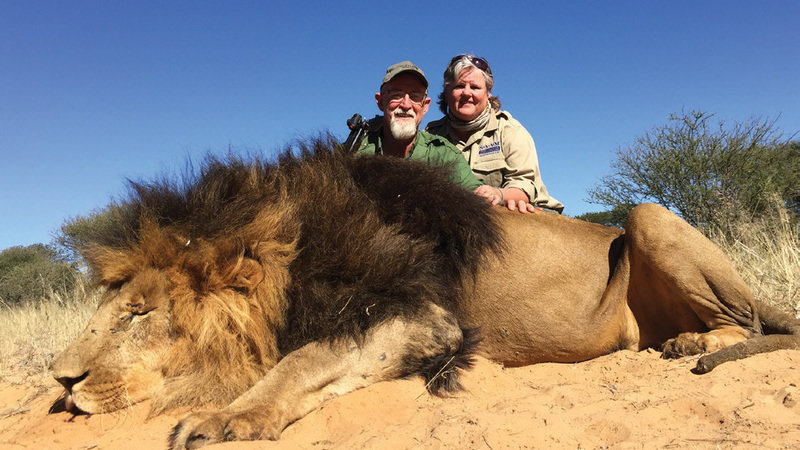- About
- Topics
- Picks
- Audio
- Story
- In-Depth
- Opinion
- News
- Donate
- Signup for our newsletterOur Editors' Best Picks.Send
Read, Debate: Engage.
| April 13, 2015 | |
|---|---|
| topic: | Hunting & Poaching |
| tags: | #Elephant Action League, #Global Financial Integrity, #Washington watchdog, #WildLeaks, #wildlife crime |
| located: | Kenya, Tanzania, Mozambique, South Africa |
| by: | Tamsin Walker |
WildLeaks has been up and running for a year now. How is it going?
We felt we had to complete a full year to test the project, not just in terms of technology, but also in terms of collaboration with other NGOs, to test our resources on the table, and our real capabilities in the field. The results are promising, so we're very happy. Because we considered the first year to be a pilot phase, we didn't invest in communication. It's only now that we're starting targeted communication in countries such as Tanzania and Kenya, but we haven't touched South America or many other countries.
What was your motivation for setting it up?
WildLeaks is a project of the Elephant Action League, which has the permission to fight wildlife crime using innovative, concrete and collaborative means. I was thinking about doing something within that remit, because I realised a lot of people know a lot of things, but that they were to afraid to share their knowledge. WildLeaks started as an online platform, but we also have a very strong investigative component with our teams investigating in the field, or sharing leaks with other NGOs. So the online platform became just one component.
What is your aim?
We have two main objectives. The first is to prevent wildlife crime, and the second is the identification, arrest and prosecution of what we call the big fish - individuals behind serious wildlife crime. Although we get information about small time poachers and traffickers, they are not our targets, and putting them in jail is not the solution. What we want is to try and get to the 'untouchables', to the politicians, the corrupt security officers, the businessmen behind those crimes. WildLeaks is a long-term project and we know it takes time to understand the modus operandi of an organisation, to understand how certain things are smuggled out, and who the people behind it are, but it is a very important thing to do.
What are the dangers involved in trying to expose the key players involved in wildlife crime?
When you investigate in the field, you realise that the authorities will more or less allow you to do what you want up to a certain point. If you find a poacher or trafficker, and you call the authorities, they will arrest him and be happy about it. But if you want to aim higher and hit certain people, it becomes really really dangerous. But if we don't do that, we won't win.
What are the biggest challenges you face in trying to expose criminal networks?
The biggest challenge is probably sharing what we do with the public. We don't want to jeopardize the investigation or create problems for anyone, and we want to protect our sources, so that means we can't share everything. But sometimes we try to share just to let people know what we are doing and to get help. If, for example, we have some information, but want more, we might share a sanitized version. We can't publish names because that would kill the investigation immediately, so we have to think very carefully before we publish anything.
Have you received a lot of leaks in the past year?
Altogether, we have received more or less 70 pieces of information, some are leaks, others are what we call leads, because they still require a fair bit of work in the field. Out of these 70, we believe some 20 are useful, interesting and good, and our team is currently researching four of them. We have generated four investigations in the field, but as you can imagine, the minute you are in the field researching a lead or a leak, you generate many more. We have had a few leaks that are now in the drawer, waiting for people to work on them, because even good leaks often require extra research.
Are the ones you have received from any particular countries?
There are no specific countries, but from Africa in general. We have received four from Kenya, one from Tanzania, and two from Mozambique that generated another in South Africa.
Can you give an example of the kind of leaks you receive?
We received the name of a top-level politician from Kenya who is allegedly involved in ivory trafficking. We received a very interesting leak about containers leaving the port of Mombasa, for Asia. The leak did not say what was in the containers, just that something was wrong. The person who sent it to us attached a shipping manifesto, and we shared this with law enforcement agencies almost immediately. They managed to open the containers in Malaysia and Vietnam but they found nothing. My personal impression is that they managed to get away with it, because the actual shipment was completely different from the shipping manifesto.
Are there are any arrests or prosecutions in the offing as a result of the leaks you have received and pursued?
We might be quite close to some arrests, but that is not prosecution. Whenever we facilitate an arrest, it is a great thing, but we also expose ourselves and our network, so we don't want to do it for small fish. That makes no sense.
links:
By copying the embed code below, you agree to adhere to our republishing guidelines.

